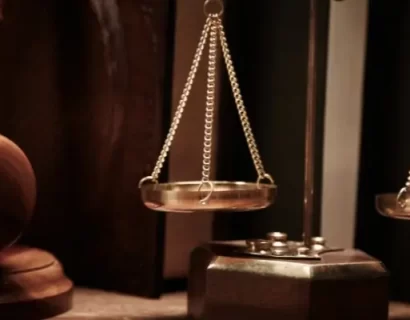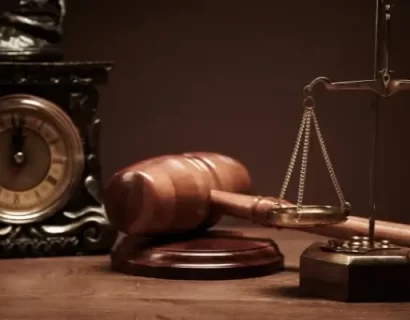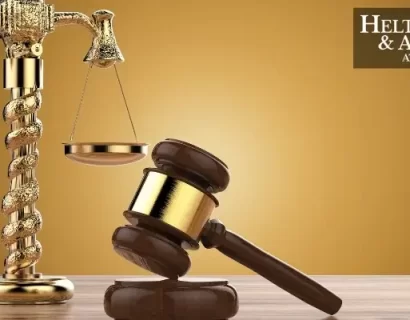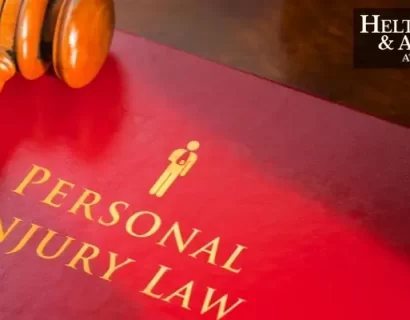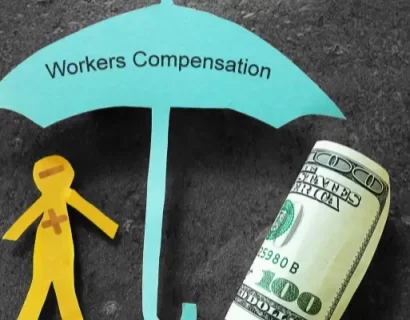Blog
When Does Workers’ Compensation Offer a Settlement in North Carolina?
You may already know that workers' compensation is a form of insurance. It provides wage replacement and medical benefits for injured employees or those who become ill on…
What to Do If Your SSDI Check Isn’t Enough to Survive in North Carolina?
North Carolina has a current cost of living that’s similar to the national average. This makes the Tar Heel State neither very expensive nor very cheap when compared…
What Additional Benefits Can You Get With SSDI in North Carolina?
In the Tar Heel State, people can get supplemental benefits in addition to federal assistance through the Social Security Disability Insurance (SSDI) program. If you are unable to…
How Are Damages Calculated in Personal Injury Cases in Hickory? 2025
Personal injury cases hinge on accurately assessing damages to ensure fair compensation for victims. Understanding how damages are calculated in personal injury cases in Hickory is crucial for…
Average Work Injury Compensation for Nurses and CNAs in North Carolina (2025)
North Carolina nursing staff, including nurses and certified nursing assistants, experience diverse workplace hazards like back injuries from patient handling, needlestick injuries, and repetitive strain injuries. When a…
What to Do If Your Truck Workers’ Compensation Claim Is Denied in North Carolina? 2025
Truck drivers injured on the job often feel blindsided when their workers’ compensation claims are denied, leaving them wondering what to do if their truck workers’ compensation claim…
How Much Is a CRPS Claim Worth in North Carolina? 2025
How much is a CRPS claim worth in North Carolina? This is one of the most pressing questions individuals ask after being diagnosed with complex regional pain syndrome…
What Percentage of Motorcycle Riders Get in Accidents in North Carolina? 2025
North Carolina boasts scenic highway stretches and some of the most picturesque motorcycle routes in the entire country. With diverse landscapes along the Blue Ridge Mountains, motorcyclists are…
Is It Worth Getting an Attorney for a Car Accident in Hickory? 2025
Throughout Catawba County and across North Carolina, car accidents happen too often. They can occur anywhere and for many reasons. If you are a victim of a recent…
What Are the Chances of Winning a Disability Case with a Lawyer in North Carolina? 2025
For people with an illness or a disability that prevents them from working, Social Security Disability Insurance (SSDI) benefits can provide much-needed financial assistance. However, it’s hard to…
What Is Considered a Fully Favorable SSDI Decision in North Carolina? 2025
After an illness or injury that left you unable to work, you may be entitled to receive disability benefits from the federal Social Security Disability Insurance (SSDI) disability…
Is It Possible to Get Approval for Both SSI and SSDI Benefits in North Carolina? 2025
Supplemental Security Income (SSI) and Social Security Disability Insurance (SSDI) programs provide financial assistance to individuals who cannot work due to a disabling condition. There are different benefits…
What Happens If You Don’t Have Enough Work Credits for Social Security Disability In North Carolina?
Social Security Disability (SSD) benefits can provide crucial financial support for individuals with serious conditions or disabilities. To qualify, the Social Security Administration (SSA) requires applicants to demonstrate…
How Long Does SSI Last in North Carolina? 2025
For many North Carolinians, Supplemental Security Income (SSI) is a critical lifeline that provides benefits for people who are unable to work due to age, disability, or limited…
What Conditions Automatically Qualify You for Disability in North Carolina? 2025
If you are seeking Social Security benefits, understanding what conditions automatically qualify you for disability in North Carolina is a critical first step as you prepare to apply…
Average Spinal Cord Stimulator Workers Comp Settlement in North Carolina (2025)
Spinal cord stimulators are often used in workers’ compensation cases to treat chronic pain resulting from severe workplace injuries. These devices are designed to help individuals manage persistent…
What to Do If Your Workers’ Compensation Claim for Surgery is Denied in North Carolina? 2025
A workplace injury requiring surgery can leave you facing serious physical and financial hardships. Workers’ compensation is designed to ease the burden by covering medical expenses, including surgery,…
Spinal Cord Stimulator for CRPS in North Carolina Workers’ Comp Cases (2025)
Complex regional pain syndrome (CRPS) is a debilitating condition that can make recovery from workplace injuries particularly challenging. For those with severe or treatment-resistant CRPS, a spinal cord…
How Surgery Affects Your Workers’ Comp Settlement in North Carolina? 2025
Surgery is often necessary to treat severe workplace injuries, but it can significantly impact your workers' compensation. Understanding how surgery affects your workers’ comp settlement in North Carolina…
What North Carolina Workers’ Compensation Lawyers Won’t Tell You? But We Will
If you have recently been harmed on the job in North Carolina, you are likely feeling overwhelmed by navigating the workers' compensation claims process. Although workers' compensation lawyers…
Common Motorcycle Accident Injuries in North Carolina
Motorcycle accidents can result in severe and life-altering injuries, especially in North Carolina, where motorcyclists enjoy scenic roadways but also face various risks on the road. Common motorcycle…
How Is Fault Determined in a Car Accident in North Carolina?
Automobile accidents are painful and riddled with fault issues. Knowing how fault is determined in a car accident in North Carolina is important to anyone looking to recover…
North Carolina Personal Injury Statute of Limitations
A statute of limitations is the legally defined timeframe within which you must file a claim after an incident occurs. In personal injury cases, this period allows time…
Car Accident Without Insurance Not At Fault North Carolina
In North Carolina, car accidents can be legally complicated, especially if one or both drivers involved are uninsured. When an accident occurs, and you are without insurance but…
North Carolina Motorcycle Helmet Laws
Helmet laws on motorcycles really help protect riders and keep riders from suffering serious injuries. The rules for motorcycle helmets that are supposed to help you stay safe…
What to Do After a Truck Accident in North Carolina?
Truck collisions are quite deadly, and sometimes, they create severe physical, psychological, and financial issues for the injured parties. When you know what to do after a truck…
Average Dog Bite Settlement in North Carolina
Dog bites often result in significant physical harm, emotional trauma, and financial strain. If you or somebody you love was injured by a dog attack in North Carolina…
Average Workers Compensation Settlement in North Carolina
Following a workplace injury, an injured worker may file a claim that can lead to monthly payments or a lump-sum settlement. A one-time payment can cover all future…
Average Wrongful Death Settlement in North Carolina
If you recently lost a loved one due to someone else’s negligence, you are probably wondering what is the average wrongful death settlement in North Carolina. The settlement…
How to File a Car Accident Claim in North Carolina?
If you have recently been in an accident and are wondering how to file a car accident claim in North Carolina, know that there are several essential steps…


